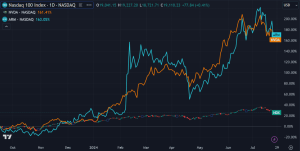Share this page:
Please note that tax treatment depends on the specific circumstances of the individual and may be subject to change in the future.
As the UK emerges from the pandemic, with billions spent on furlough and the NHS put under unprecedented pressure, taxes are going up to restore the Treasury’s coffers and tackle the NHS backlog. From the 6th of April, National Insurance contributions are to rise by 1.25 percentage points from 12% to 13.25%, which really means your contributions will likely rise by over 10%! This is in combination with the upcoming increases in dividend and council taxes, at a time where many are already feeling the squeeze as the cost-of-living bites. Naturally, for many cutting down on tax payments would make a significant difference to them and their families at the end of the month. Here’s how to do it:
ISAs
Tried and tested, ISAs have always been one of the most popular vehicles to protect savers from excess tax. In the UK there are four types of ISAs available: stocks and shares ISAs, cash ISAs, innovative finance ISAs and lifetime ISAs. You currently get an ISA allowance of £20,000 every year.
What sets ISAs apart is that you pay no tax whatsoever on interest or capital gains, nor must you declare it on your tax return. Over the long term, this can make a huge difference to how much money you keep. Let’s do a quick calculation to see exactly how: if you were to invest your full ISA allowance of £20,000 each year in a stocks and shares ISA and made 8% a year over 20 years, reinvesting the profits, you would have made £703,295.27. At the current capital gains tax rate of 20%, you would save £140,659.054 of tax, just for investing in an ISA rather than a regular investment account! Check out our top-rated Stocks and Shares ISAs.
Pensions
The government want to incentivise people to pay into their pensions, so that they have enough to live on in later life. For this reason, there is great tax relief on pension contributions. You can get relief for the full value of income tax you pay, because it is paid into your pension before tax is calculated. So, for example if you made £60,000 per year and paid £15,000 into your pension, you get tax relief on that full £15,000.
Many employers match contributions as well, so you get a double-edged benefit of tax relief and an employer boost, so make sure you take advantage of your full entitlement!
VCTs and EISs
VCT and EIS stand for Venture Capital Trust and Enterprise Investment Scheme respectively. These are government-backed schemes to encourage investment into small British companies by giving tax reliefs, whilst helping these companies raise funds.
So, how much can you save? Well, you get 30% tax relief by investing in these schemes; however, you must hold your EIS investment for at least three years, and VCT investment for at least five.
So with EIS investments you can get your money out more quickly, though the benefit of the VCT is that, unlike with the EIS, you aren’t liable for capital gains or dividend tax.
Whilst clearly very tempting, these investments are risky due to the nature of the investments, so are not suitable for everyone. Typically, it is very high earners who have the most to gain from these schemes. If you would like to know if you would benefit, make sure you speak with a qualified Financial Advisor.
Don’t leave it until the last minute: get your ISA sorted now!
If you’re looking to invest in shares, ETFs or funds, then opening a Stocks and Shares ISA could be a great choice. Shelter up to £20,000 this tax year from the Taxman, there’s no UK income tax or capital gains to pay any potential profits.
Our Motley Fool experts have reviewed and ranked some of the top Stocks and Shares ISAs available, to help you pick.
Investments involve various risks, and you may get back less than you put in. Tax benefits depend on individual circumstances and tax rules, which could change.
Was this article helpful?
YesNo
About the author
Share this page:
Some offers on The Motley Fool UK site are from our partners — it’s how we make money and keep this site going. But does that impact our ratings? Nope. Our commitment is to you. If a product isn’t any good, our rating will reflect that, or we won’t list it at all. Also, while we aim to feature the best products available, we do not review every product on the market. Learn more here. The statements above are The Motley Fool’s alone and have not been provided or endorsed by bank advertisers. John Mackey, CEO of Whole Foods Market, an Amazon subsidiary, is a member of The Motley Fool’s board of directors. The Motley Fool UK has recommended Barclays, Hargreaves Lansdown, HSBC Holdings, Lloyds Banking Group, Mastercard, and Tesco.
This post was originally published on Motley Fool







